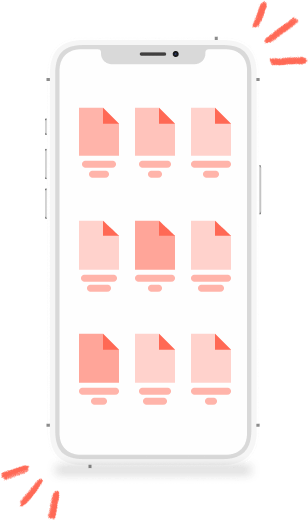


Guide to cash flow & budgeting in Hong Kong
We explain what cash flow and budgeting mean, what the government expects from you, and how to organise these processes
Schedule a call- Xero Platinum Partner

- TC006825

- Certified Public Accountants

- Chartered Secretaries


What Is Cash Flow?
Cash flow, simply defined, is the amount of cash or its equivalent that is being transferred in and out of the business. A cash flow is positive if a company has more liquid cash coming in rather than going out. It’s a show of company’s robust financial health.
Financial means of any business are distributed across many areas — for example, its assets, outstanding invoices, and investments. One of the surest ways to determine a company’s financial performance is checking its cash flow statements.

What is Budgeting?
A business budget is the financial plan of the company. It is an adjunct to the overall business plan which lays out, in numbers, what the company hopes to achieve that year in terms of money. It contains detailed and data-backed forecasts of annual projected sales, profits, revenue, and expenses of a company.

Why is positive cash flow important?
More cash in hand allows companies to settle their debts, pay shareholders and expenses, and invest in business growth. Every business must be diligent about recording and tracking its cash flow. Bills, expenses, invoices, instalments, premiums, or incoming payments – big or small – must all be appropriately tracked. Most companies use automated or freelance accounting services in Hong Kong to monitor and manage their cash flow.

Why should business owners track their cash flow and work with a business budget?
Budgets and forecasts are an essential tool for running businesses efficiently and expanding it. It is a monetary depiction of an organization's strategy. Using budgeting and forecasting strategies allows business owners and managers to identify the resources needed to meet their goals.
In fact, an integral and critical part of every business budget is a cash flow forecast that predicts future sales figures, or the likely cash flow into and out of a company’s bank account in a year. It consists of information regarding cash from operations, cash from investments, and cash financing activities.
Accounting plans that match
the size of your business
You don’t measure your business by the number of transactions, so neither do we. Our accounting packages are tied to your revenues. Pick a monthly plan to pay a small regular fee or a yearly one and get 2 months free of charge. All our packages come as they are, no extra charges — simple and straightforward
What’s your average monthly ?
Profits Tax Return, (BIR51) filing
HK$1,000
Consolidated unaudited report, per subsidiary
HK$5,000
Holdover of provisional profits tax application
HK$2,000
Application for Offshore tax exemption
from HK$10,000

Your financial data protected
We set up a direct connection with Xero and your bank to exchange your data securely. All your documents will always be in one place protected with bank-level encryption
Additional things
you may need
One-off services upon your request
HK$2,000 per year
Audit liasing
We help with the audit you need to pass every year
HK$5,000 per subsiduary
Consolidated unaudited report
HK$1,000 per return
Profits tax return (BIR51) filing
For nil profits or a Dormant company
HK$2,000 per application
Holdover of provisional profits tax application
For clients using Accounting services
from HK$10,000
Offshore profits tax exemption
We handle replying to questions regarding your company’s qualification.
We calculate the fee for each case individually
Our clients know best
89% of customers recommend us
7,500+ clients worldwide

Here’s what our customers say
Q&A
What are the budgeting compliance requirements for Hong Kong businesses?
Every Hong Kong company must submit an annual report called Profits Tax Returns or PTR. Here’s what exactly you need to file:
- Your balance sheet for the year of assessment
- Auditor's report
- Profit & Loss Account
- A tax computation that shows clearly how you arrived at the final amount of assessable profits or adjusted losses
- Report of Employers Return (ER) for year April to March
For newly incorporated companies, PTR is due within 18 months since the company registration. For others, the timeline depends on the accounting end date
Accounting Year End Date Due Date between 1 April to 30 November 2019 30 April 2020 between 1 to 31 December 2019 15 August 2020 between 1 January to 31 March 2019 15 November 2020 How can I manage my budgeting and cash flow?
Maintaining cash flow and budgeting information accurately is vital to ensure the smooth running of a business. And it can only be realized if the company invests in excellent bookkeeping practices. For this, you can either outsource your accounting services to freelance accounting and bookkeeping service providers in Hong Kong or pay for an automated budgeting app for your Hong Kong office. We do both: provide a software solution and a team of experts backing it up. You can always ask their advice on difficult matters while the platform provides accurate data and daily updates.














